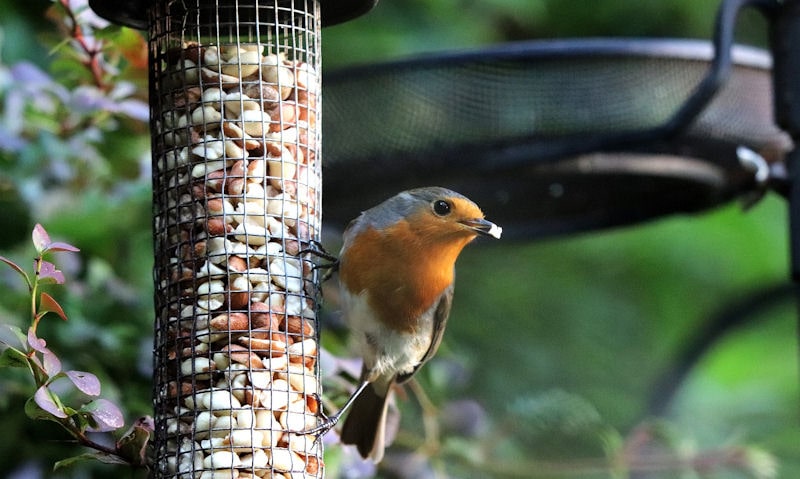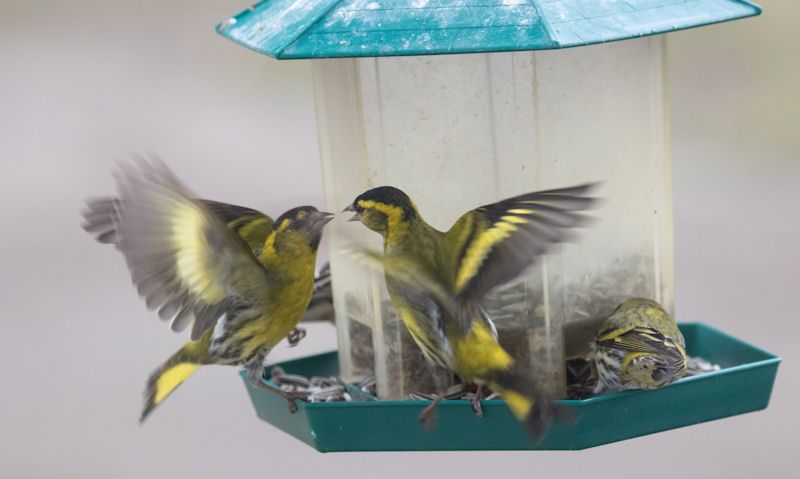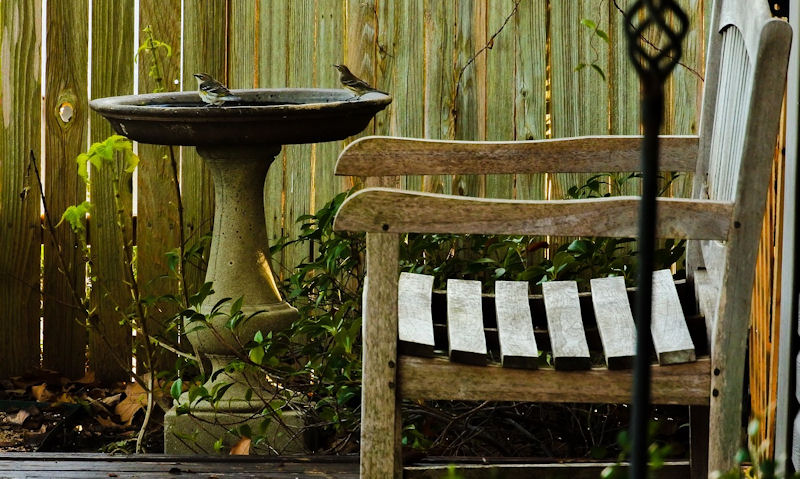Do birds become dependent on bird feeders
Believe it or not bird feeders have been a regular feature of the British garden landscape for decades, so wild birds naturally become dependent on them.
Birds do become so dependent on bird feeders in our gardens, it can mean life or death in harsh Winters or a drought in Summer. To stop feeding birds will not see them return to their instincts by feeding in nature, but to seek out new bird feeders, bird tables or bird feeding stations nearby, or further a field.
Common garden birds do become dependant on your feeders, so its imperative then you keep up with using the same feeders with the same feed you have always used.
Birds who are currently visiting your garden daily could be new arrivals, but so to can they be regulars since they were chicks - so to switch bird feeders or food types randomly on them can have a devastating impact.
Keep up with peanuts, seeds and suet fat ball then, or all of the above which happens to be the most popular wild bird food in the UK.
Likewise, the bird feeders that are made to hold such feed are the most popular bird feeders in use.
Effect of removing feeders from the garden or to stop replenishing them won't be so impactful it can kill them - but it can mean you lose wild birds visiting your garden, while those regulars never return.
Where they go you'd never know, but it can be a near neighbours garden who use feeders also, but it can see them fly off to new feeding grounds - but small common garden birds rarely depend on nature alone.
Birds CAN depend on Bird Feeders
As it happens, wild birds who regularly visit our garden to feed off our feeders, will come to depend on it overtime.
In less than a week with a regular yet reliable source of food you leave out, a select number of birds who do indeed use bird feeders would come to rely on it.
Its therefore safe to say they will turn up first thing in the morning, expecting the feed you have been using, to be there everyday.
What this can mean is these birds do become dependent on feeders, so it can cause distress once you've stopped replenishing like you previously did.
Birds do have a short memory but do remember where feeders are, so know what to expect once they arrive in your garden, so early in the morning.
What time of day birds arrive to feed off your feeders would be on time, so just imagine them turning up one day, to no food at all.
Continue to depend on nature
Thankfully, wild birds who commonly use our garden to feed on a daily basis, know that they must return to nature to find food found in the wild.
Be it creepy-crawlies found in bushes or worms buried in the ground, eventually they will get back to their old habits, but will they...
Not so fast, because other bird feeders do exist in large numbers.
So dependent are common garden birds on feeders, their instinct will see them seek out food sources in nearby gardens - be it in the same neighbourhood or across the city to find a mix of hanging bird feeders, a bird feeding station or a bird table.
They then might just miss going back to their old ways of putting in an effort to eat, when relying more on people is so much more convenient.
And it is too, wild birds do not have to venture far to find gardens with bird feeders. So if everyone were to stop feeding them in one go - we would likely see birds starve, and in turn so will their young.
Convenience over instincts
Much like people who order takeaway or pop into the supermarket for a sandwich, that can apply to wildlife if you'd believe it or not.
Its so much easier to feed off bird feeders than go through the trouble of fighting wild bird rivals off feeding grounds - when they could scrap over food that is plentiful on bird feeders.
No garden bird goes without as long has bird feeders are hung up in our gardens.
To become dependant on bird feeders, these birds are likely to have used feeder along with their parents as chicks - so recognise bird feeders as a place to get a reliable source of food - with only food of course they include in their diet.
They reply on you to only offer them feed they can eat then, so to miss out seeds, nuts or fat balls, you could see certain species go without - thus losing them to a nearby neighbour or further a field.
Feeders must never run low
As wild birds become dependent on you to feed them on a daily basis, its then up to you to replenish the feeders regularly to prevent them ever running out.
To run low can see feed become inaccessible, to run out all together can see your regular birds make plans for going elsewhere.
Like children you've fed their whole lives, its hard to believe you've probably been responsible for feeding many of the birds on the feeders since they were chicks in the bird box.
Do take feeding wild birds off bird feeders more serious then, knowing they do depend on you to feed them daily.
Never change time, food in use or the types of feeders too drastically, as it can effect the birds who've arrived daily for years.
More important issue is to always use the same feed, with the exception of it being from another brand or what you may make at home yourself.
Summary
Birds do become dependent on bird feeders, so much so these birds that visit your feeder on a daily basis can be the same ones since they were young.
To stop feeding birds in your garden then would not so much see them return to their old ways in nature - as it never happened for some - but they will only go out to find new bird feeders to use, other than yours.
Birds depend on bird feeders so therefore you do become responsible for a small number for longer than you can imagine.
And as certain bird species can only eat certain food groups, never change feeds any time as it can effect your regulars - meaning they cannot eat new food at all.
Surely, by knowing that it can be a little daunting birds come to rely on you.
So do take more responsibility then by never allowing bird feeders to run dry, or they must go elsewhere to feed - or else they risk starving to death.


